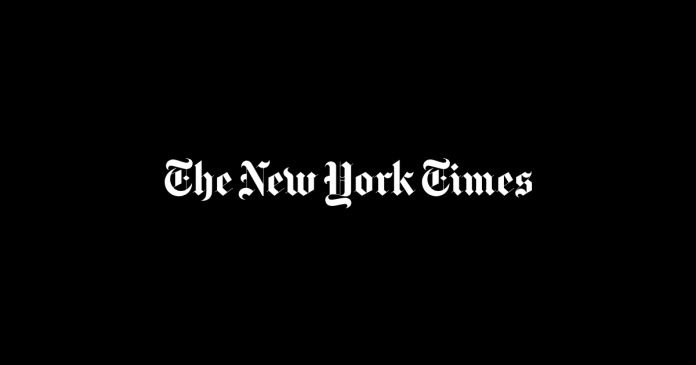Inflation in the eurozone slid last month to the lowest level in more than a year, as an easing of price rises after last year’s run-up in energy bills gained momentum. But the price of food and services climbed at an uncomfortable pace, raising the odds that the European Central Bank will continue to lift interest rates to curb costs.
Consumer prices in countries that use the euro rose at an annual rate of 6.1 percent in May, down from 7.0 percent in April and well below double-digit increases in autumn, Europe’s statistical agency reported Thursday. Excluding volatile food and energy costs, so-called core inflation rose 5.3 percent, down from 5.6 percent the month before.
Yet while the yearlong surge in inflation has peaked, millions of households in Europe are continuing to confront a cost-of-living crisis, even as employers raise wages to help offset the pain, an issue that remains a top concern for E.C.B. officials.
“I could not say that the victory is there so far,” the bank’s vice president, Luis de Guindos, said in Frankfurt earlier this week.
Analysts at Nomura Bank said they expect policymakers to increase interest rates twice more in the coming months, bringing the eurozone’s main interest rate to 3.75 percent. “Persistently high core inflation will remain a concern for the E.C.B.,” they wrote in a note to clients earlier this week.
The moderation in price gains last month reflected efforts by governments in Europe’s largest economies to lower skyrocketing energy costs over the winter through concerted efforts to make up for a decline in Russian gas supplies. Many continued a policy of shielding households from soaring energy bills. They also put pressure on food producers to cap surging prices on grocery store shelves.
Germany’s annual inflation rate fell to 6.3 percent in May, from 7.6 percent in April; in France, the rate fell to 6 percent, from 6.9 percent, well below economists’ forecasts. Spain’s inflation fell to 2.9 percent, a two-year low as the government there subsidized gas bills.
Despite government programs to protect consumers from runaway prices, food costs remain high, increasing at a double-digit annual rate in May. In France, the eurozone’s second largest economy, food purchases slumped 11 percent below the level during the coronavirus pandemic.
The slowdown “shows the significant impact of the inflationary context and the fall in purchasing power, which has led households to significantly alter their consumption habits,” Charlotte de Montpellier, senior economist at ING Bank, said in a note to clients.
France is among countries that are pulling back on generous energy subsidies as the government seeks to rein in its finances, heralding an increase in costs for consumers and businesses.
The inflationary pressures have increasingly filtered through the eurozone’s economy, especially for services ranging from hotel managers and waiters at restaurants to truck drivers, whose costs have been zooming up as employers raise wages amid worker demands to keep up with rising monthly expenses. Services inflation rose at an annual 5 percent pace in May, a steep increase from the previous year.
The labor market in the euro area remains tight, as unemployment has fallen to the lowest on record, reaching a seasonally-adjusted rate of 6.5 percent in April, Eurostat reported. Hourly labor costs in the eurozone rose at a record pace of 5.7 percent in the fourth quarter of last year, compared with a year earlier.


